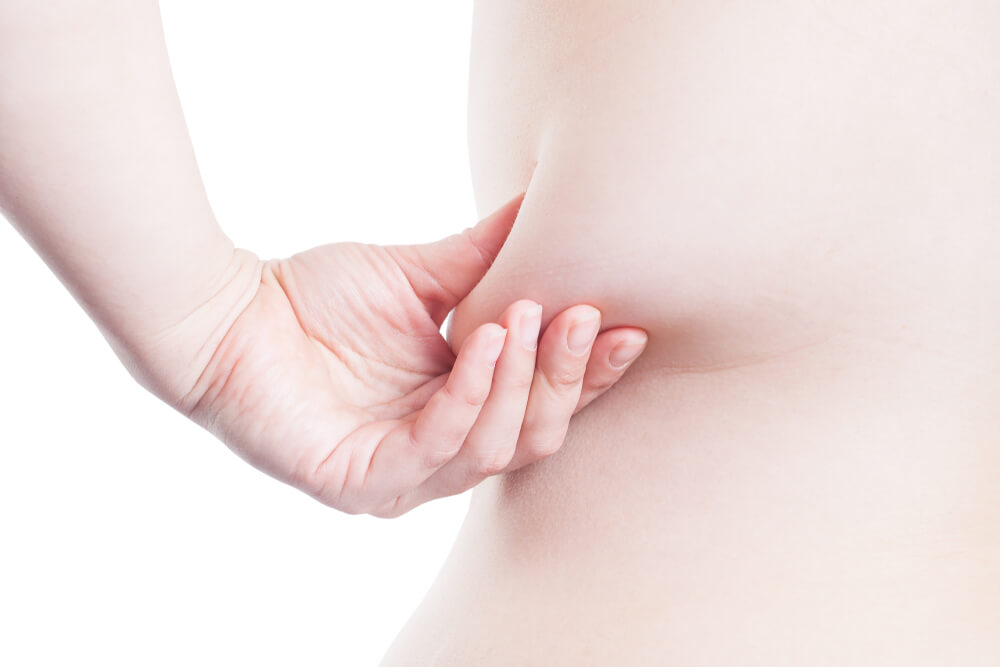- Category: Articles About Weight Loss Procedures
A dramatic and long-lasting weight loss approach for obesity is bariatric surgery. That is the reason why hundreds of patients embark on medical tourism to destinations where chances of getting the procedure done are prominent. Out of the existing weight loss surgeries, gastric bypass surgery is the most effective for patients with morbid obesity.

What is Diabetes?
This disease threatens millions of lives around the world. Diabetes is a disease that comes up because of high blood sugar. This means that the inability of the body to regulate glucose (blood sugar) triggers the disease.
Over 150 million people worldwide are at risk of diabetes. It is on record that Type 2 Diabetes Mellitus (T2DM) is the most popular and has the highest number of patients. The Type 1 format specifies the inability of the body to produce sufficient insulin. In this case, patients are the risk of reduced life expectancy to the tune of 20 years. Studies into the disease opine that the risks are more than that of Type 2 diabetes.
On its part, the Type 2 Diabetes Mellitus (T2DM) is a diabetic condition in which the pancreas produces sufficient insulin. For some reasons, the body finds it hard to make use of the available insulin. It is on this note that patients are the risk of diabetes complications, such as stroke, heart failure, and in severe cases, blindness.
Can Gastric Bypass Surgery solve the Problem?
The procedure has wide acclamation for its unique prospects at “curing” diabetes. It is worth mentioning that there is no medical cure for diabetes. Hence, the touted prospects of a cure from the gastric bypass surgery seem to be untenable.
Nevertheless, about 65% of patients who underwent this weight loss surgical operation reported cases of diabetes remission. It is in light of this that we put up this article to offer insights to existing relationships between gastric bypass and Type 2 Diabetes Mellitus (T2DM).
Gastric Bypass does not Cure Diabetes
When the news of gastric bypass as a “cure” for diabetes hit the public domain, many obese individuals began preparations to undergo the surgery. Their joy knew no bounds because the touted notion of “no cure” for the disease seems to be false after all. To the joy of about 65% of these patients, the disease “went away”. However, that was just for some time. Diabetes tends to crawl back to the body after an interval of five (5) years. While the severity after a comeback may not be as the early stages, it was a disappointment for the patients.
It is on this note that the assertion seems to be a “smokescreen”. Scientists are yet to make a groundbreaking discovery on the best way to get rid of the disease. Gastric bypass surgery is quite effective to some extent but shouldn’t be regarded as a complete solution for the disease.
Bypassing the Bypass
There is no doubt that weight loss surgery has many benefits for obese people. In addition to the dramatic weight loss that stays intact for some years, patients also stand the chance of getting away from the scourges of diabetes. Now, analysts that are keen about the relationship between the surgery and the disease hint that gastric bypass surgery is literally “bypassing the bypass”.
It’s worth mentioning that the disease (diabetes) has a correlation to obese people. The traditional way of control diabetes is taking medications, eating diets in the right amounts and embarking on physical activities. The aim is to burn extra calories, which, in turn, reduces body mass. The same scenario takes prominence in obese individuals, as they take advantage of exercises and diet to cut down on the body mass.
In the light of long-term achievement of set goals, patients tend to take recourse in gastric bypass surgery. In this case, the procedure disrupts the traditional way of digestion. By cutting off about 90% of the stomach, the surgery helps patients (obese and diabetic patients) to lead a healthy lifestyle thereafter.
By changing the route of the food movement in the body, patients can now have faster digestion after food consumption. Worthy of mention is the movement of food from the esophagus to the smaller pouch (the new stomach). This, in turn, empties the food into the loop of the intestine. The intestine on its part secretes the hormone responsible for insulin production.
Although the gastric bypass surgery may help in weight loss, it also boosts insulin use in Type 2 diabetics. Note that before now, people suffering from Type 2 Diabetes Mellitus (T2DM) have a setback in the use of insulin. This is a chronic situation called “insulin resistance”. Over the years, medical research has not been able to specify the cause of this. Nonetheless, insulin resistance among these patients triggers a medical condition called, “hyperglycemia”, which is high blood sugar.
Through the process of a bypass, the Roux-en-Y Gastric Bypass (RYGB) surgery reinvents food digestion in a way that insulin production and use will be possible. The reduction of the stomach size by 905 and the reconnection of the remaining stomach pouch to the small intestine help in facilitating digestion and triggering the insulin-secretion hormone into action.
The Secret lies in the Small Intestine
Before we continue, it’s important to point out some facts. Studies are yet to highlight the role of bypassed digestive systems in “curing” Type 2 diabetes. Furthermore, it has not been established the role the intestine plays in the whole affair. In spite of limited information to support or challenge the status quo, there are underlying factors that shed lights on the touted outcome of the gastric bypass surgery.
Unbeknown to many patients, the bypass in the stomach empowers the small intestine to become the sole facilitator of digestion. The secret for the “cure” of diabetes after the gastric bypass surgery lies in the small intestine. The idea here is that the small intestine begins massive production of GLUT-1, a molecule that helps the body use glucose. Considering the inability of the body to make use of insulin derived from food, it goes to show that the proponents of this molecule can be the major reason why patients witness immediate “suppression” of diabetes after gastric bypass.
In furtherance of this notion, the study behind this posited that the intestine has much work to do in the movement of nutrients in the body. In a bid to facilitate the process, there is a tendency of pushing (dumping) food directly into the intestine. Furthermore, the delegation of the intestine as the most functional tissue in the body (at the time), facilitates the use of glucose. This, in turn, culminates to a reduction in blood sugar levels. By virtue of this, incidences of hyperglycemia (high blood sugar) will be at the barest minimum. To that end, the proposition that the (small) intestine is the most important tissue for digestion and use of glucose may actually hold some water. This is further credence to the notion that gastric bypass surgery positively affects Type 2 Diabetes Mellitus (T2DM).
>Remission is not Cure
As you may have observed, there is a growing concern about the attributes of gastric bypass surgery as a cure for diabetes. As explained in the last paragraphs, the intestine facilitates the use of glucose in the body. This step reduces insulin resistance and decreases high blood sugar.
On the other side, the surgery is not a cure for diabetes. A study that sought the truism in this notion, after painstaking researches, posited that 65% of obese individuals who underwent gastric bypass surgery had their diabetes go into remission. By “remission”, we mean that the disease went away for a specific period (normally an interval of 5 years), and can stage a comeback if necessary checks are not in place. In light of this, patients cannot really expect complete freedom from the disease. They only stand the chance of leading a healthy lifestyle in the absence of diabetes symptoms and complications.
In furtherance to this, the study went on to posit that 65% of Roux-en-Y Gastric Bypass (RYGB) recorded remissions of diabetes within the first six (6) months of the surgery. Afterward, the figure of patients who had a remission rose to 74% in the next 6-12 months interval. This trend continued at the rate of 70% for every 6 months within the first five (5) years of the surgery.
On the contrary, 6% of the patients suffered a relapse that triggered the disease once more. This happens within the second year after the surgery. Furthermore, 12% and 18% of the patients relapsed from the remission in the third and fourth year after the surgery. By the fifth year, about 27% of RYGB patients underwent a relapse. This goes to show that gastric bypass surgery is not a "cure" for diabetes. Even in the state of putting off the disease for some time (remission), there are chances of a relapse, which can trigger symptoms of diabetes.
Nevertheless, the procedure remains viable because it helps half of the patients to remain diabetes-free for a long period. This is subject to the patients’ ability to stick to follow-up/aftercare services and making relevant lifestyle changes. Above all, patients that undergo the Roux-en-Y Gastric Bypass (RYGB) surgery are relieved of their anti-diabetic medications a few days after the procedure. That is because the remission of diabetes starts before the actual weight loss.
Gastric Bypass Surgery is not for everyone
You must let that phrase sink into your mind before considering the procedure. Just like every other serious/life-changing surgical operation, the gastric bypass surgery is not for every patient that has the funds to foot the bills.
In light of the correlated remission of diabetes, it becomes more important to give much thought to the pros and cons before considering the procedure. Your healthcare team can offer professional advice on this.
If the procedure is not for everyone, how do I know I’m qualified? You’re welcoming to undergo the surgery in our clinic if you’re morbidly obese. Our Body Mass Index (BMI) consideration for the gastric bypass surgery is 35 and above. This is our perception to morbid obesity and we encourage to undergo the surgery is yours falls within the specified range.
Before that, you have to consider diabetes requirements. Note that the earlier you undergo the surgery, the better the outcome. A poorly managed diabetic condition may not offer favorable remission of the disease after the surgery. In addition, do not wait for the disease to get out of your control/become severe before considering the Roux-en-Y Gastric Bypass (RGBY). One of the studies in this regard suggests that patients that have less severe diabetes symptoms stand a chance of benefitting the more from the surgery. It also went on to posit that such patients will experience faster remission and will sustain the same for long.
Consider Gastric Bypass Surgery
In the coming years, the quest to undergo gastric bypass surgery will be on the rise. More obese individuals and diabetics are considering the procedure for a dramatic weight loss and remission of Type 2 Diabetes Mellitus (T2DM).
The reroute of the food stream alters the gut hormones in a way that you’ll be full faster and have less craving for food. Furthermore, restructuring the small intestine helps in the management of blood sugar levels. That is because small intestines trigger the hormones responsible for insulin secretion. In addition, the gastric bypass surgery reduces facilitates insulin sensitivity, which triggers it to action.
There is no gainsaying the fact that the Roux-en-Y Gastric Bypass (RGBY) procedure has impressive tidings for Type 2 diabetics. However, you need to have the accurate Body Mass Index (BMI) of 35 and above and have less severe symptoms of diabetes before qualifying for the procedure. Weight Loss Riga takes the health of patients seriously and assures a successful gastric bypass surgery in a risk-free environment.





